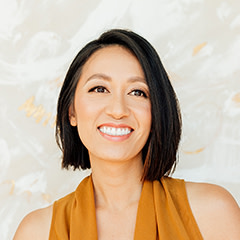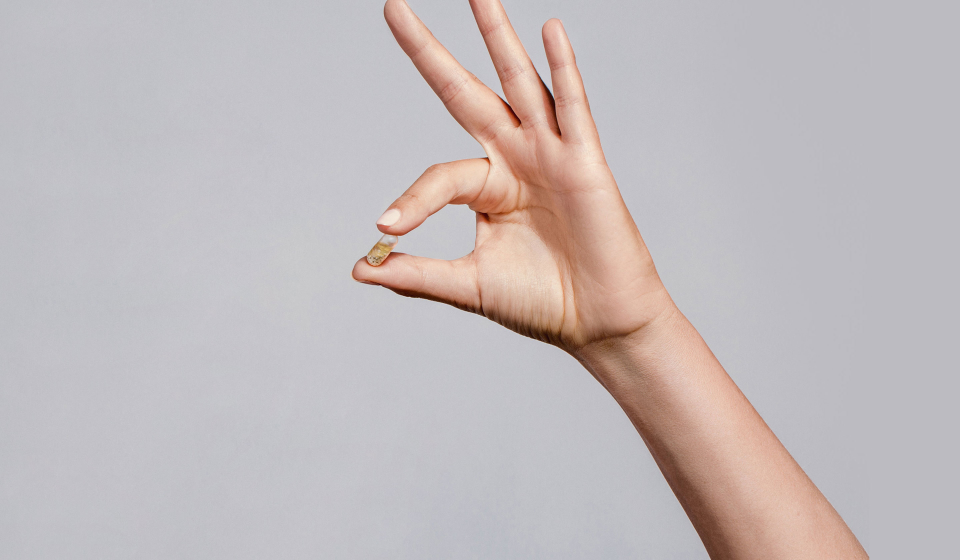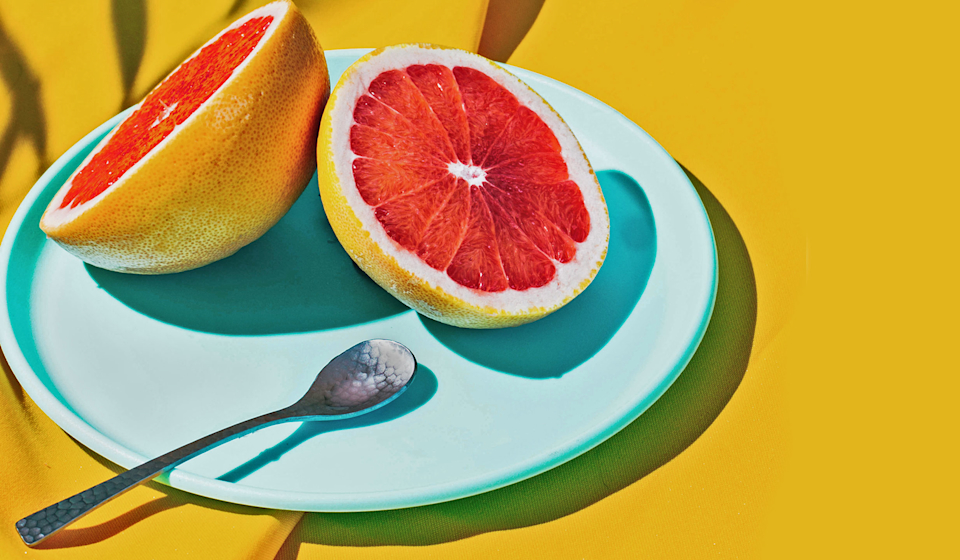4. Remember to take stock of what’s missing from your plate.
Let’s say you already fancy yourself pretty healthy—you enjoy a lot of fruits and veggies, you steer clear of processed foods. That’s an amazing start—but there might be other elements to consider. “It’s not just about what you’re eating, but what you’re not eating,” says Davenport. “Did you miss out on any key nutrients?”
The truth is that while your diet should (obviously) be your #1 priority when it comes to building better nutrition habits, it’s also really tricky to eat “perfectly” 100% of the time, especially when it comes to nutrient intake. While filling your plate with a rainbow of nutrient-rich foods is an ideal strategy, there are certain nutrients that are tougher to get from food than others, due to factors ranging from genetic variations to dietary restrictions.
Take omega-3 DHA, for example. Omega-3 fatty acids play an important role in several functions in the body, like supporting brain health, heart health, and eye health. But while omega-3 fatty acids are found in a wide range of foods, the two types that we need most—DHA and EPA—are found largely in animal products like fish. That can be really tricky for vegetarians, but it’s also where a quality multivitamin can help out.*
5. Above all else, be kind to yourself.
Hey—you’re human. “Health and eating habits don’t live in a vacuum, so forgive yourself if it’s not working out initially,” says Davenport. “Don’t forget about everything else that’s happening in your life.” In other words, one of the best ways to manage a healthy diet is taking care of yourself in other ways outside of food—to view your diet as one important cog in a routine that serves your overall well-being.
Tying new healthy eating habits to existing positive habits is a great way to approach this mindset. This is called “habit-stacking,” and research suggests that it’s actually easier to kick off new habits this way. If you relish the ritual of making your morning coffee, for example, try also using that time to also prepare a nutritious breakfast. Or if you’re having trouble staying hydrated, steal this hack from Davenport: “Every morning, you can make a beautiful jug of fruit-infused water and leave it next to the refrigerator with an empty glass,” she says. “I have a tiny vase of colorful flowers next to mine.” Voila—every time you venture over to the kitchen for a snack, that water looks all too inviting. (3)
The bottom line
Healthy eating really doesn’t have to be complicated—while understanding the science of nutrition is great, the real trick is applying that knowledge to your daily routine.*
References:
- Dougherty, E. Wired for Habit. (2015). Retrieved from MIT News
- Baldridge, Abigail S., et al. “The Healthfulness of the US Packaged Food and Beverage Supply: A Cross-Sectional Study.” Nutrients, vol. 11, no. 8, 2019, p. 1704., doi:10.3390/nu11081704.
- Lally, Phillippa, et al. “Experiences of Habit Formation: A Qualitative Study.” Psychology, Health & Medicine, vol. 16, no. 4, 2011, pp. 484–489., doi:10.1080/13548506.2011.555774.












